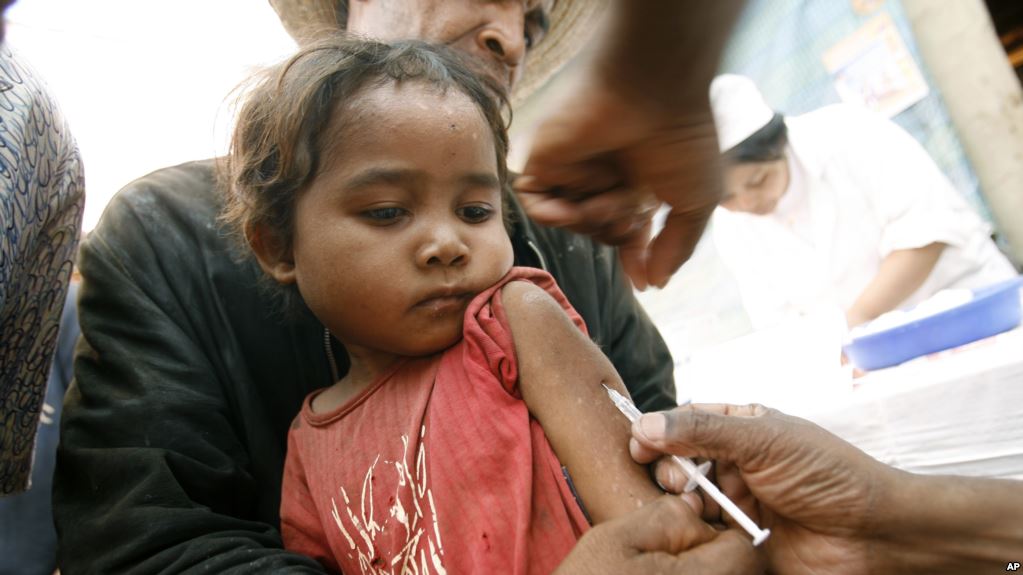
Measles outbreak kills more than 1200 in Madagascar

Babies wail as a nurse tries to reassure mothers who have come to vaccinate their children against a measles outbreak that has killed more than 1,200 people in this island nation where many are desperately poor.
Madagascar faces its largest measles outbreak in history, with cases soaring well beyond 115,000, but resistance to vaccinating children is not the driving force behind the rise.
Measles cases are rising in the United States and elsewhere, in part because of misinformation that makes some parents balk at receiving a vaccine. New York City is trying to halt an outbreak by ordering mandatory vaccinations in one Brooklyn neighborhood.
Only 58% of people on Madagascar’s main island have been vaccinated against measles, a major factor in the outbreak’s spread. With measles one of the most infectious diseases, immunization rates need to be 90% to 95% or higher to prevent outbreaks.
The outbreak has killed mostly children under 15 since it began in September, according to the World Health Organization.
“The epidemic unfortunately continues to expand in size,” though at a slower pace than a month ago, said Dr. Dossou Vincent Sodjinou, a WHO epidemiologist in Madagascar. By mid-March, 117,075 cases had been reported by the health ministry, affecting all regions of the country.
Some cases of resistance to vaccinations exist because of the influence of religion or of traditional health practitioners but they are isolated ones, he said.
Measles, a highly infectious disease spread by coughing, sneezing, close contact or infected surfaces, has no specific treatment. The symptoms are treated instead.
Late last month, WHO started a third mass vaccination campaign in Madagascar with the overall goal of reaching 7.2 million children aged 6 months to 9 years.
“But immunization is not the only strategy for the response to this epidemic. We still need resources for care, monitoring and social mobilization,” said Sodjinou, the WHO epidemiologist.






